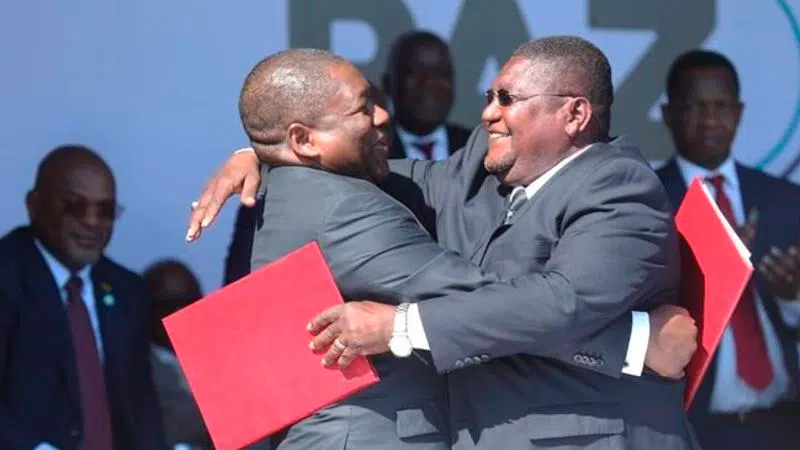
Mozambique peace accord brings hope of economic growth
GORONGOSA NATIONAL PARK, Mozambique — Mozambique’s president signed a peace accord Thursday with the country’s main opposition party Renamo to end decades of hostilities that followed a devastating 15-year civil war that killed an estimated 1 million people.
The ceremony, held in a national wildlife park that was a rebel stronghold and a centre of the conflict, brought hope for a new era of peace and economic growth in one of the world’s poorest countries, where an estimated 70% of the population lives on less than $2 per day.
It came as more than 5,200 of the former rebel group’s fighters were disarming just weeks before a visit by Pope Francis and a national election that will test the resolve of the two parties to sustain the peace.
“We are living in a moment of hope. This is the moment of our reconciliation,” President Filipe Nyusi told a cheering, ululating crowd in Gorongosa National Park, which he said was chosen for the signing because it was where the conflict began and would now be a “sanctuary of peace and biodiversity.”


